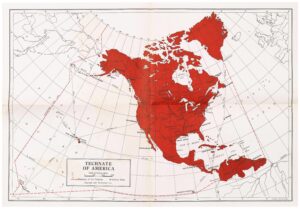 We’ve another loan-word from Latin this week, meaning to have foresight. That power need not be supernatural, but simply the art of seeing ahead often attributed variously to meteorologists, economists, futurists, gamblers, and soon-to-be-lost drivers who overrely on map apps.
We’ve another loan-word from Latin this week, meaning to have foresight. That power need not be supernatural, but simply the art of seeing ahead often attributed variously to meteorologists, economists, futurists, gamblers, and soon-to-be-lost drivers who overrely on map apps.
All that said, our word can be predictive of certain outcomes. The OED notes in an 1860 usage, “The prescient sadness of a coming and a long farewell.” The person referenced here knows what lies ahead and can predict the emotions the event will stir.
The OED’s frequency chart reveals an interesting phenomenon. Usage dipped from 1880 until about 1950, then began a steady climb that shows no signs of abating. Was that the effect of, first, our inability to predict events such as the Great Depression and the World War that followed it? Then, after that conflict, our living in a time of rapidly advancing technology, where predicting the future became something of a pleasant parlor game?
Speculations about why “prescient” has enjoyed such popularity could itself become a parlor game.
Despite that fivefold uptick in usage from the 50s to the present, some seers of the future get ignored or ridiculed. I need a post about Cassandra.
Sometimes I wonder if some prescience merely means grasping the obvious. As Bob Dylan put it, sometimes “you don’t need a weatherman to know which way the wind blows.”
I’ve no predictions for the year ahead, as classes resume. Watch the weather and watch the news as much as you can stomach it. Be ready for surprises.
Send words and metaphors my way by e-mailing me (jessid -at- richmond -dot- edu) or leaving a comment below. Want to write a guest entry? Let me know!
See all of our Metaphors of the Month here and Words of the Week here.
Image: Ulysses consults Tiresias 1st century CE from the villa Albani Marble Italy Creative-Commons license by Mary Harrsch at Flickr

